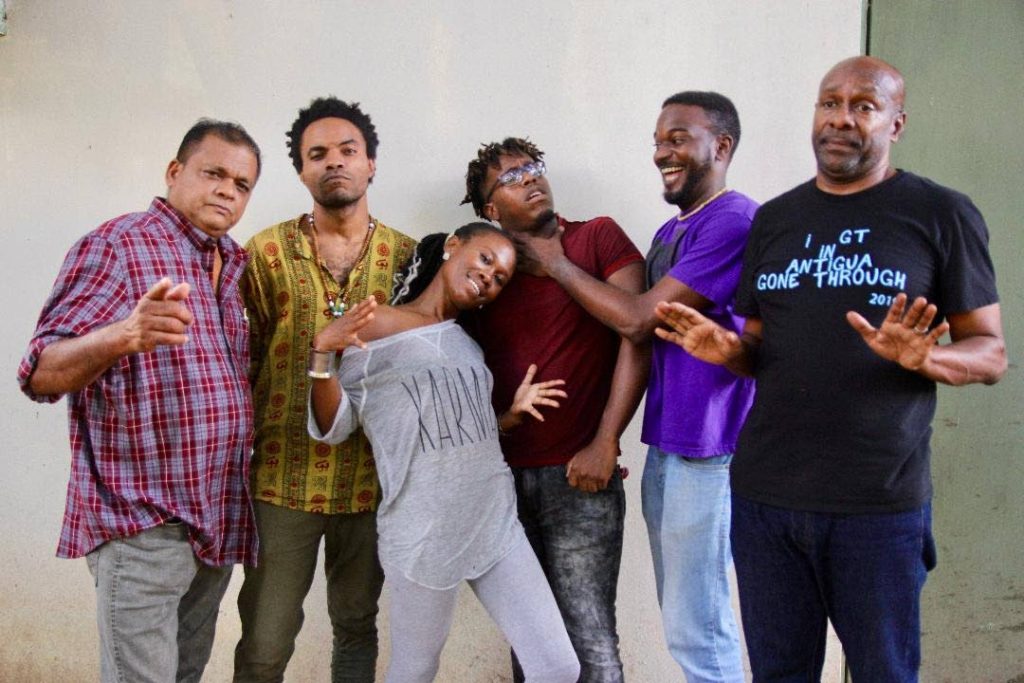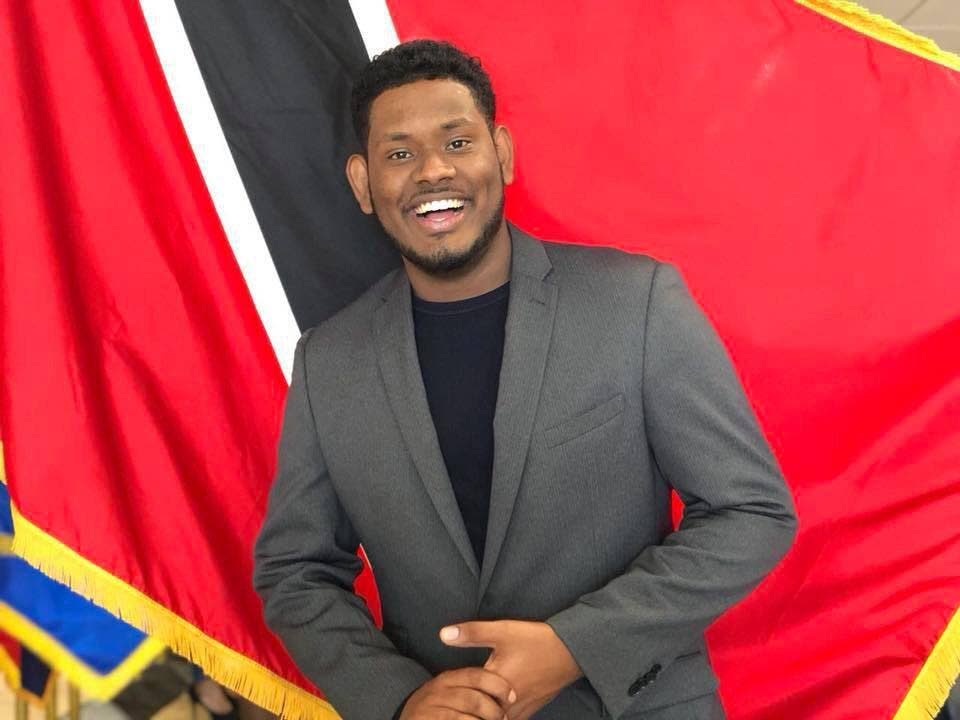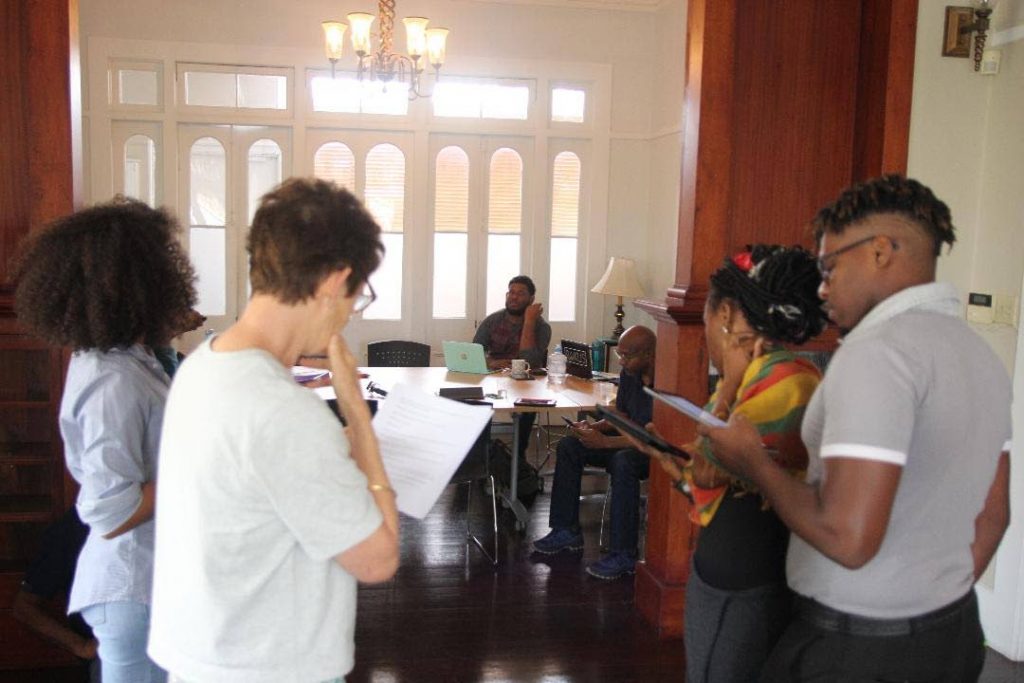Drama in the barbershop

Themes of identity, masculinity, and homosexuality have been recurring topics in the work of teaching artist, poet, and director, Kyle Hernandez, over the past few years.
He continued exploring those themes in his radio drama, Aron, a comedy set in a local barbershop. The drama is one of three selected by local media company Trini Good Media for Carifesta XVI’s Festival Radio to be broadcast locally and on BBC Radio 3.
The story follows the struggle of 19-year-old Aron who just finished school. He wants to be a barber even though he is not very good at it and his father is opposed to the career choice. It also introduces a fictional soca star who visits the barbershop.
“Aron works in his uncle’s barbershop which has been in the family for a long time. He really wants to make the shop better and find a place there even though he’s not as witty, confident, and cocky as all the other male barbers.”
The idea for Aron came from a poem Hernandez, 24, had previously written about a gay man in a barber shop. He wanted to explore that world more which led him to write the characters. He said the topics of masculinity, and homosexuality were not being addressed enough and when they were, they were addressed in a toxic manner. He intends to use his knack for humour as a way to get the message across without preaching or lecturing.

“There are really amazing, kind and gentle people doing the work but there are also people who don’t have the necessary tools to do the work effectively. So when you have conversations around masculinity and sexuality as it relates to the Caribbean man, often times black cisgendered straight men feel left out of the conversation and they get frustrated. Even in my own experience, I feel very frustrated. People keep telling us it’s our fault but we don’t know why or how to get around it. I recognise my writing to be light and unassuming and sometimes that’s a really good way to penetrate the brain.”
Hernandez has been involved in advocacy with several organisations on gender-based violence and believes it is important. He gave the example of Jason Jones and the buggery law challenge in 2018 and how members of the LGBT+ community were met with frustration, anger and hate from several sections of society.

“Me being a Christian man I was just really really hurt to see some of my friends react in such hurtful and harmful ways. I was very frustrated and angry about that and I wanted to try to use my art as part of that conversation. I don’t want to force anything down anybody’s throat. I just want to offer a perspective and have conversations.”
He said that poetry is his job but he has a background in theatre arts, has previously written plays, poems with dialogue and is a big fan of sketch comedy. He is also a fan of “the writing scene” in the UK as he loves the dry humour and “the way they worship words.”
Hernandez said he was aware radio dramas were popular in the UK and had listened to several radio dramas and podcasts but had never envisioned himself writing one. He said he was “blown away” by the prospect of his work being broadcast on the BBC. “I’m really big on connecting worlds so I saw this as another step in putting TT on the world map in a meaningful way.”
He said writing a radio drama was an education and an eye-opening experience. He said getting his idea onto the page was a challenge but he was grateful to the team at English production company, Sparklab Production, for giving him advice, holding meetings online and generally assisting him.
He was appreciative of being allowed to cast the play himself, as well as being in the room during rehearsals and recording sessions. Sparklab director Mel Harris made it clear that his opinion was valued and he was able to make adjustments to the script even at that stage. “It was a very reassuring experience to me and it was a great experience collaborating with someone who looks at art and words so differently.”
He added that he was very happy with many aspects of the drama especially the acting but was nervous about striking a balance with the accent as it had to be understandable for the UK audience yet authentic. “What I’m most proud about is that the play doesn’t tell a cliche story about Carnival or bake and shark by Maracas. It’s very nuanced and it’s still Trini in a genuine way.”

Comments
"Drama in the barbershop"